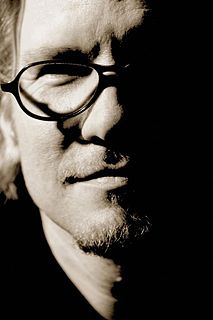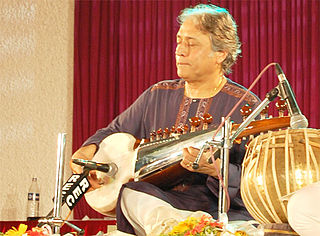A Quote by Eric Weiner
Music was literally in the air at the time, the Vienna of 1780. Everybody played music, classical music. There were in fact so many musicians that in apartment buildings people had to come up with a schedule - you practice at 5 p.m., I'll practice at 6 p.m. That way the music didn't collide with one another.
Related Quotes
I started piano lessons at age six but didn't take music seriously until I was a teenager, when I thought about a career in music. I studied classical music, and my instruments were guitar and piano. I played keyboards in bands, and after high school I went to Vienna to study at the Academy of Music. I also became a session player, which culminated in my work with Tangerine Dream.
For me, let's keep jazz as folk music. Let's not make jazz classical music. Let's keep it as street music, as people's everyday-life music. Let's see jazz musicians continue to use the materials, the tools, the spirit of the actual time that they're living in, as what they build their lives as musicians around.
I only knew classical music, which to me was the only true music. The only way I could survive at the bar was to mix the classical music with popular songs, and that meant I had to sing. What happened was that I discovered I had a voice plus the talent to mix classical music together with more popular songs, which at the time I detested.
I think the other thing that's important is getting to a place, which very, very rarely happens with improvising groups, where somebody can decide not to play for a while. You watch any group of musicians improvising together and they nearly all play nearly all the time. In fact I often say that the biggest difference between classical music and everything else is that classical musicians sometimes shut up because they're told to, because the score tells them to. Whereas any music that's sort of based on folk or jazz, everybody plays all the time.
In the United States, many people said you can't have folk music in the United States because you don't have any peasant class. But the funny thing was, there were literally thousands, tens of thousands, hundreds of thousands of people who loved old time fiddling, ballads, banjo tunes, blues played on the guitar, spirituals and gospel hymns. These songs and music didn't fit into any neat category of art music nor popular music nor jazz. So gradually they said well let's call it folk music.
Early American music and early folk music, before the record became popular and before there were pop stars and before there were venues made to present music where people bought tickets, people played music in the community, and it was much more part of a fabric of everyday life. I call that music 'root music.'
The people wanted to believe that the Negroes couldn't learn to read music but had a natural talent for it. So we never played with no music. I'd get all the latest Broadway music from the publisher, and we'd learn the tunes and rehearse them until we had them all down pat- never made no mistakes. All the high-tone, big-time folks would say, isn't it wonderful how these untrained, primitive musicians can pick up all the latest songs instantly without being able to read music?


































